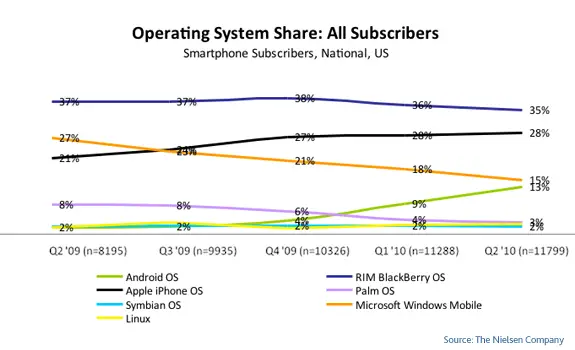They found Marcus Turner in a ditch in north Mississippi, naked and shot to death.
It was the end of a young man's life and a grim reminder of a larger truth: The Mexican drug war isn't as far away as you might think.
The order that led to Turner's death was phoned in from Mexico, prosecutors say. They say the man on the other end of the line was Craig Petties of Memphis, Tenn., alleged to be a drug trafficker who developed such close ties to a Mexican cartel that he moved south of the border and lived under its protection for years.
His story reflects the tight links between Mexican cartels and homegrown drug trafficking organizations throughout the nation. It also shows that Americans who buy illegal drugs contribute to funding corruption and killings in Mexico.
Petties could face the death penalty on charges that he ordered assassinations of six Memphis rivals while operating a trafficking empire that funneled hundreds of kilos of cocaine and more than a ton of marijuana into Tennessee and other states.
Petties has pleaded not guilty and awaits trial. He and his attorney declined interview requests.
The case is a personal tragedy for the family of Marcus Turner, whom Petties allegedly ordered kidnapped in 2006 because he knew where to find someone who had stolen cocaine from the organization.
Turner's mother, Lucy Turner of West Memphis, Ark., says her son was involved in the drug trade and that she begged him to change.
"And he did tell me before he died, 'Mama, I do what I do by choice. Not because I don't know better. Because you and Daddy taught me well'."
The Turner kidnapping is one of many acts of violence that authorities have linked to Petties, who grew up in a tough South Memphis neighborhood and built an extensive criminal record.
U.S. Marshals say he is a half brother to Paul Beauregard, better known as DJ Paul of the popular rap group Three 6 Mafia, which has produced songs about drug trafficking and killings. Through a publicist, Beauregard declined comment.
The pending federal case against Petties dates to 2001, when he and others were caught with 600 pounds of marijuana.
Released on bail, Petties disappeared in 2002, officials say. It's unclear when he arrived in Mexico.
Petties was living under the protection of the Beltran Leyva cartel, with whom he had done business in the U.S., the former attorney general of Mexico, Eduardo Medina Mora, has said.
The cartel's leaders were the Beltran Leyva brothers, a group of five or six men who would later break off from the larger Sinaloa Cartel, based on Mexico's Pacific coast.
Medina Mora said that Petties became a broker for the cartel, "using his contacts in the United States to secure and speed up the traffic of drugs to the north."
Petties was a key liaison between the cartel and African-American groups and his flight to Mexico may have even helped him expand the enterprise beyond Memphis and into Georgia, Mississippi, North Carolina and Texas, Drug Enforcement Administration agent Abe Collins wrote in a 2008 affidavit.
Mexican groups dominate wholesale-level drug dealing in the United States and act as drug distributors or suppliers in at least 230 U.S. cities, the National Drug Intelligence Center wrote in a December 2008 report.
"The growing strength and organization of criminal gangs, including their growing alliances with large Mexican (cartels), has changed the nature of midlevel and retail drug distribution in many local drug markets, even in suburban and rural areas," the center wrote in 2009.
That makes it harder for state and local authorities to fight trafficking, the report says.
In Memphis, for instance, most of the cocaine, marijuana and methamphetamine that arrives is smuggled from Mexico and delivered by 18-wheelers or cars with secret compartments, said Keith Brown, who until recently served as resident agent in charge for the DEA.
He said Mexican cartels act as suppliers but usually don't control sales in Memphis.
About 6,600 people died in drug-related violence in Mexico last year.
America has seen relatively little violence by Mexican cartels because traffickers view U.S. law enforcement as more competent and less corrupt than Mexican institutions, said Alex Posey, an analyst with the global intelligence company STRATFOR.
But the Mexican military and other Mexican agencies were responsible for Petties' January 2008 capture in a city called Queretaro.
Petties was quickly deported home.
Later that month, the Mexican military arrested Alfredo Beltran Leyva, one of the brothers in the cartel's leadership.
The remaining brothers suspected betrayal by the Sinaloa Cartel, a group they had been part of, according to drug cartel expert George W. Grayson.
That led to a bloody war between the cartels.
Then on Dec. 17, 2009, Mexican Marines killed cartel leader Arturo Beltran Leyva and six of his men in a shootout. It appeared to be a victory in the war on cartels that Mexican president Felipe Calderon has waged since the 2006 start of his presidency.
The Marines lost one man, whom they buried with honors.
But after the funeral, assassins broke into a house and killed the Marine's mother, his aunt, a sister, and a brother.
Shortly thereafter, Petties was moved from the federal lockup in Memphis to another federal institution in Tallahassee, Fla. The Bureau of Prisons won't say why.
One possible reason emerged in June, when Petties was indicted for having weapons while imprisoned in Memphis.
As Petties awaits trial, Marcus Turner's three children are growing up without a father.
Lucy Turner, who works as an emergency services dispatcher, said the loss of her son has affected the youngest daughter, who's now eight.
"Her doctor says she's very depressed, and he thinks that's what she's depressed about," she said. "But she talks about her daddy all the time."
Lucy Turner didn't weep in a recent interview. She says that a few months ago, she wouldn't have been as strong.
"I would just cry my heart out. That was my baby."
By DANIEL CONNOLLY - Scripps Howard News Service
Posted: July 30, 2010



